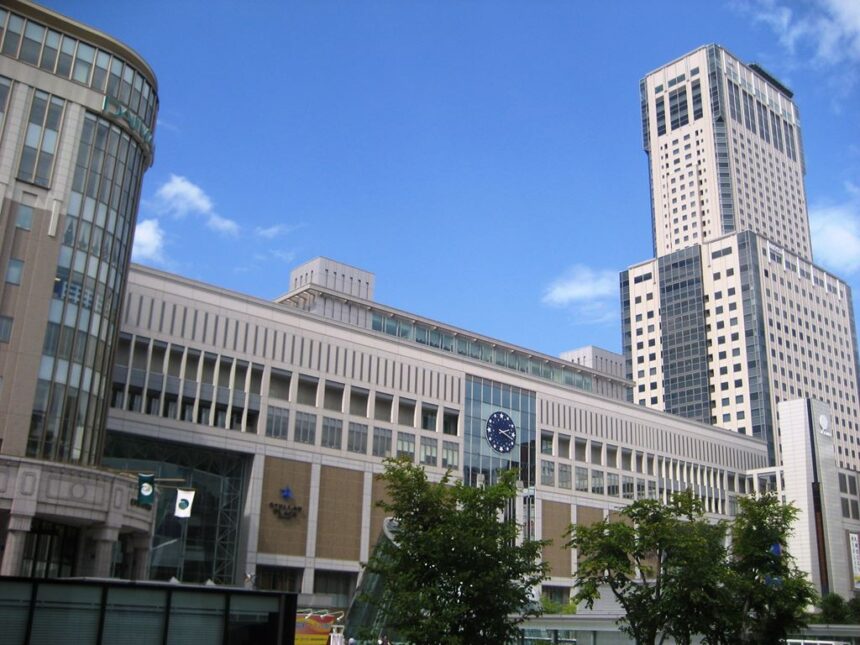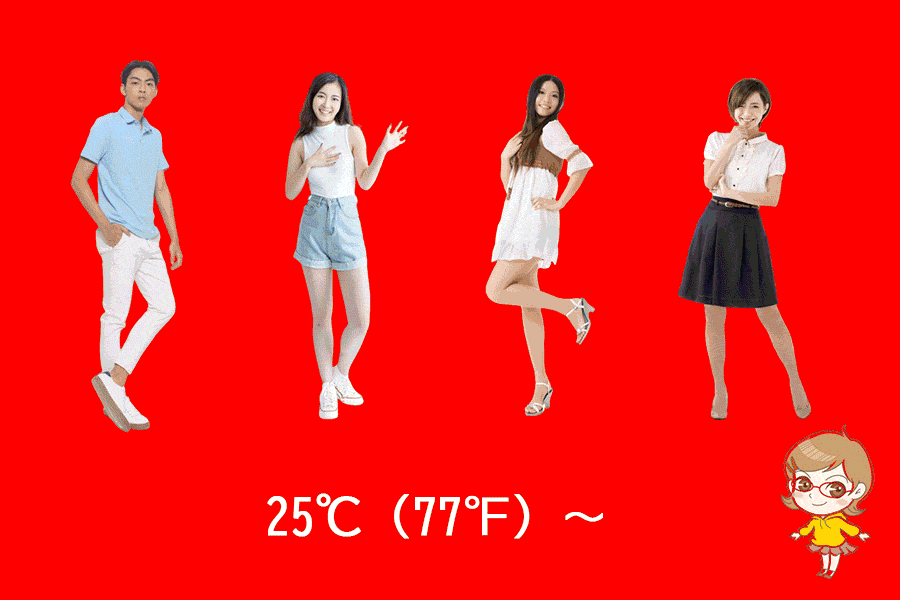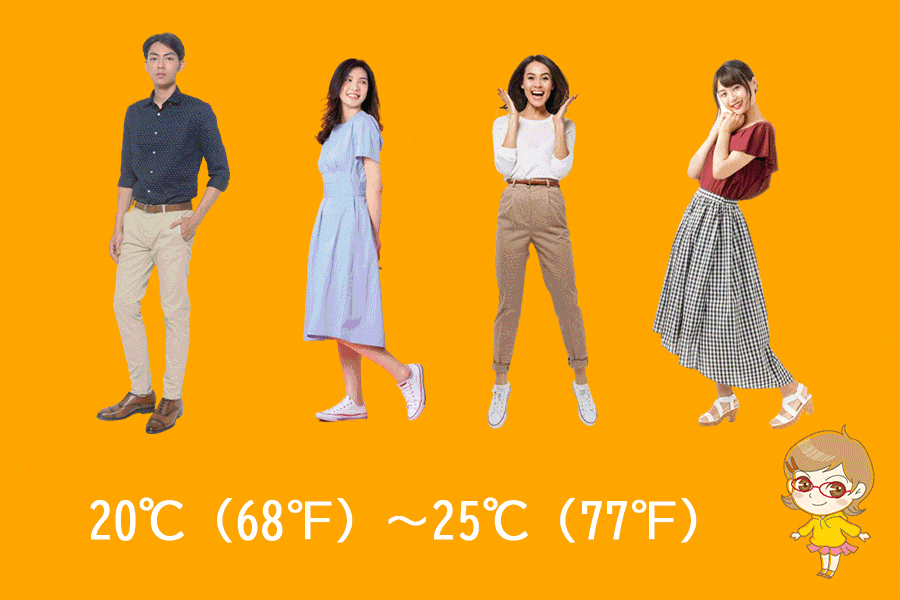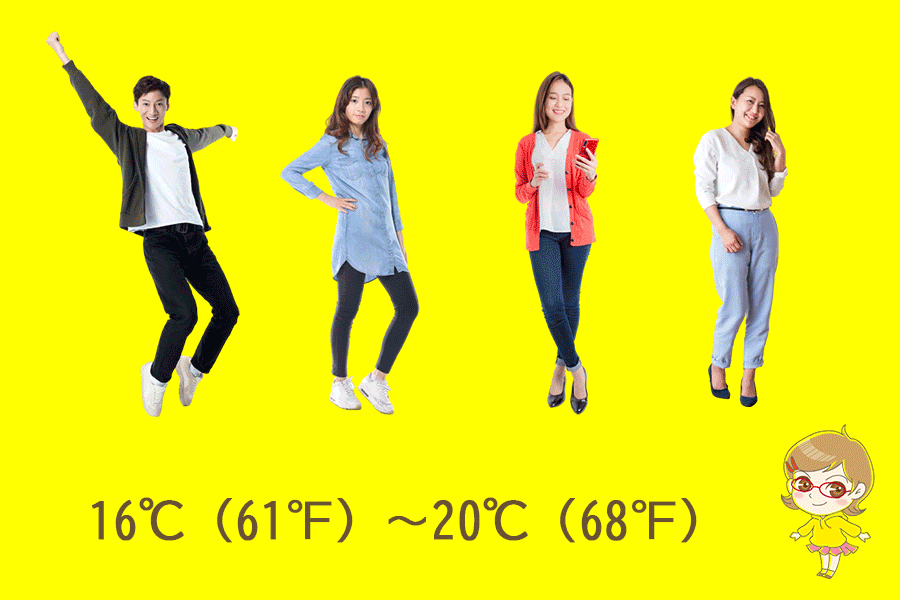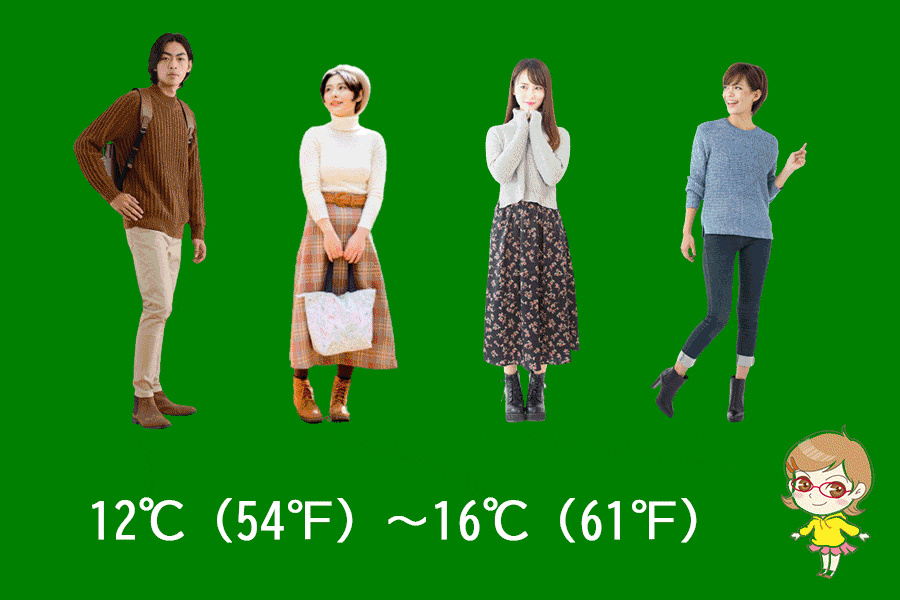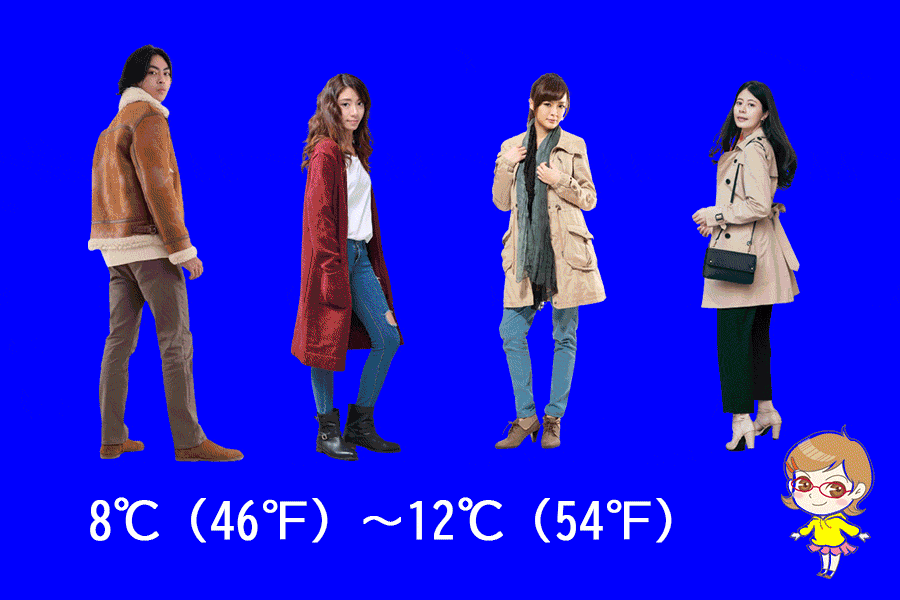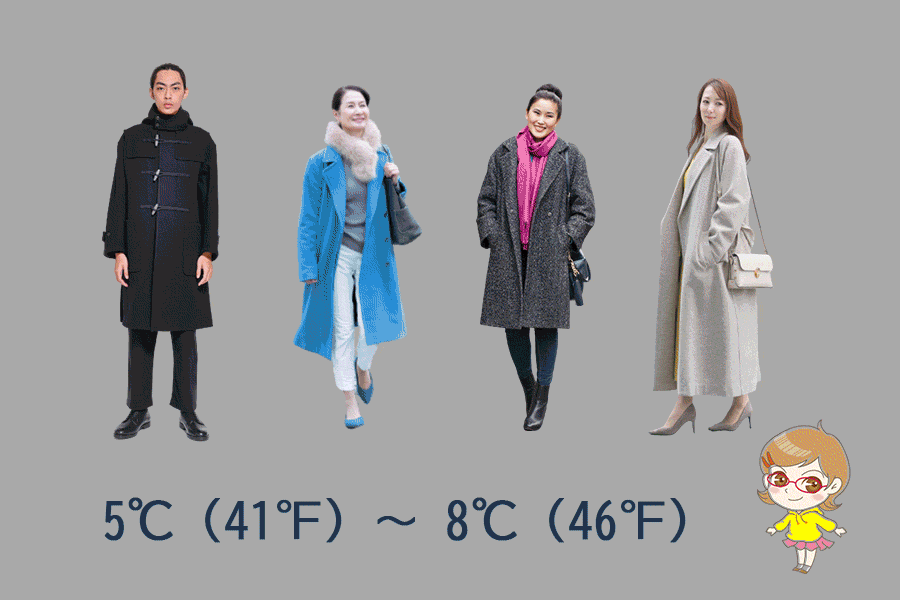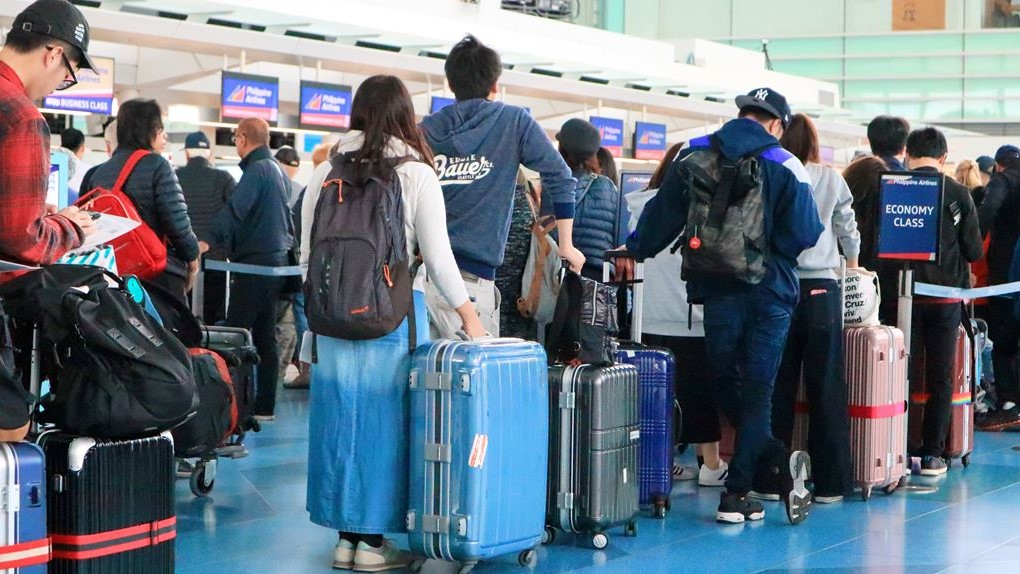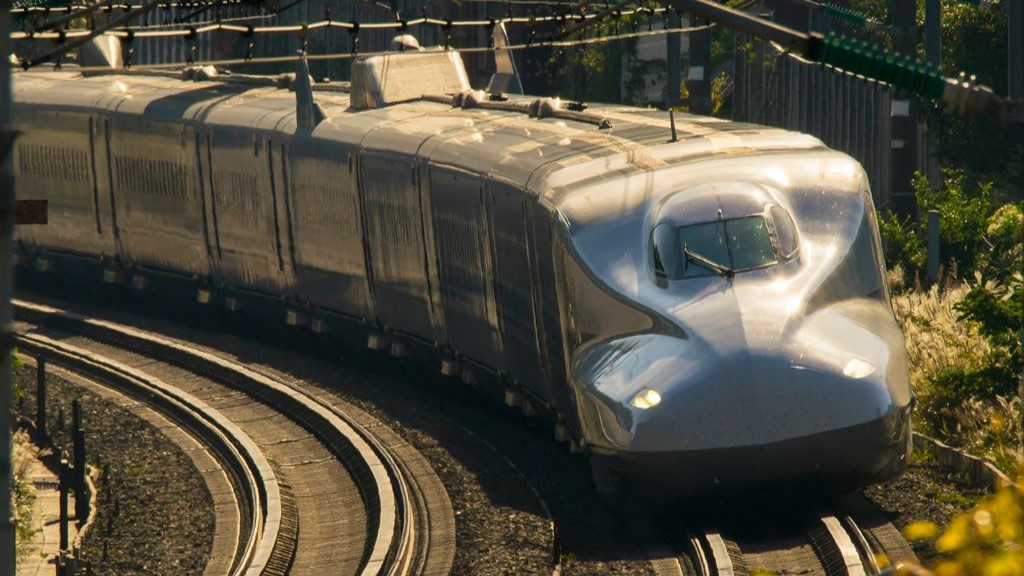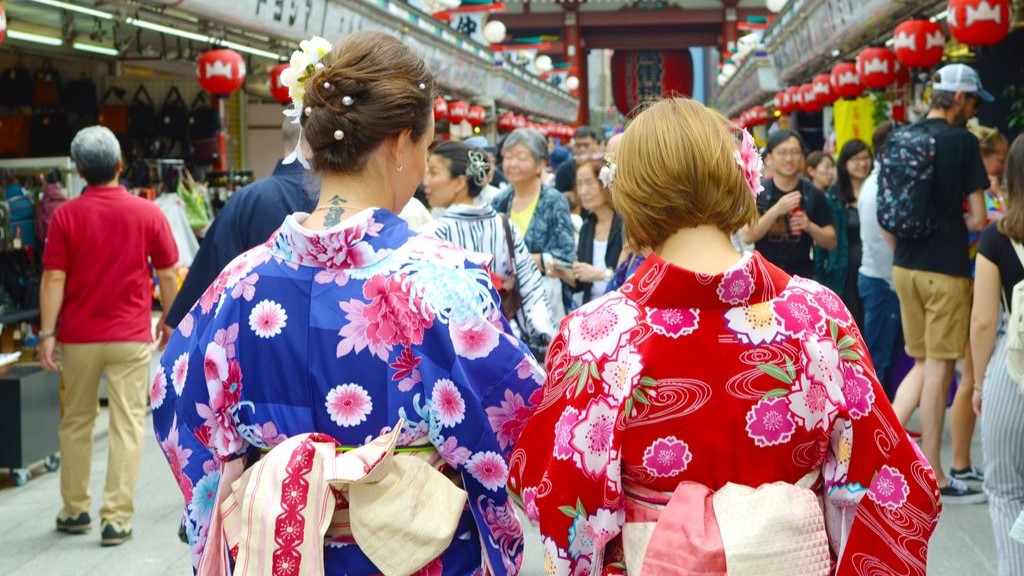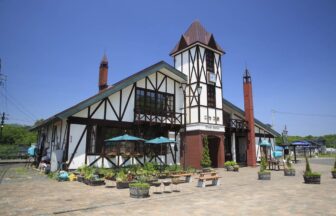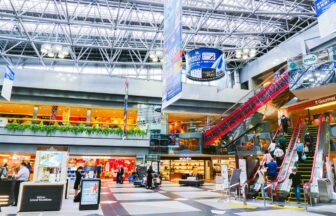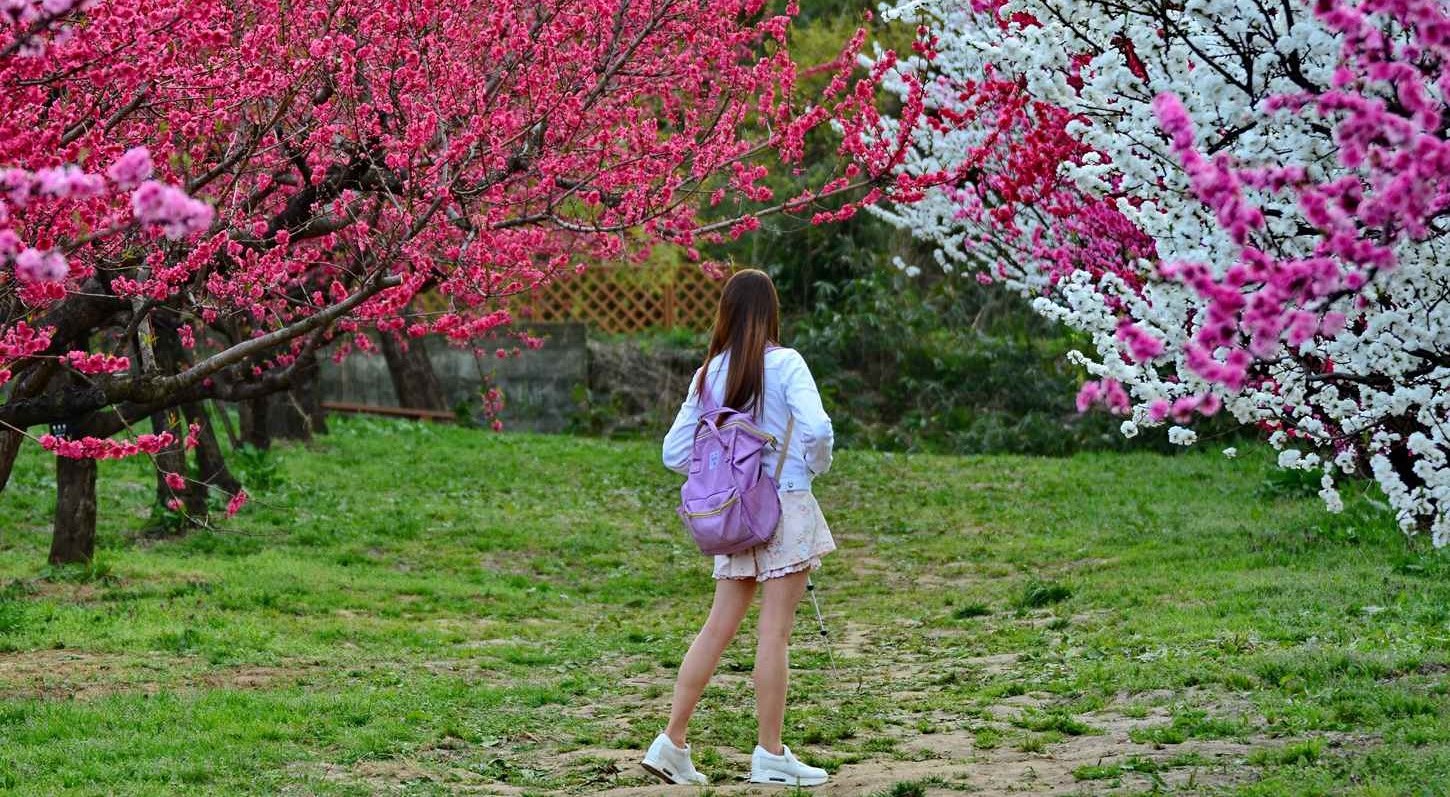4 Chome Kita 6 Jonishi, Kita Ward, Sapporo, Hokkaido 060-0806 MAP
↓ Click to jump to the relevant section.
| Current Weather | Annual Weather | Tourist Attractions |
| Baggage Deposit | Hotels |
Current weather and clothing

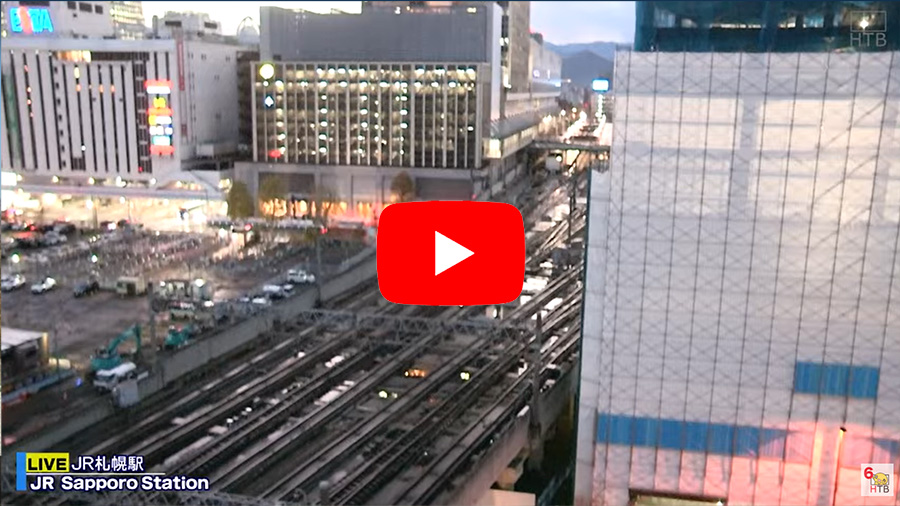
Yearly temperature changes and recommended clothing
Clothing recommendations for each temperature range
When traveling in Japan with the following average temperatures, the recommended clothing is as follows:
Monthly changes in temperature, precipitation, and snowfall (1991~2020 average, Japan Meteorological Agency survey)
| Jan. | Feb. | Mar. | Apr. | May | Jun. | Jul. | Aug. | Sep. | Oct. | Nov. | Dec. | |
| temperature(°C) | -3.2 | -2.7 | 1.1 | 7.3 | 13.0 | 17.0 | 21.1 | 22.3 | 18.6 | 12.1 | 5.2 | -0.9 |
| precipitation(mm) | 108.4 | 91.9 | 77.6 | 54.6 | 55.5 | 60.4 | 90.7 | 126.8 | 142.2 | 109.9 | 113.8 | 114.5 |
| precipitation(cm) | 137 | 116 | 74 | 6 | — | — | — | — | — | 1 | 30 | 113 |
Winter
November
The average temperature in Sapporo in November is 5.2°C with occasional rain or snow. It is recommended to bring layers, including a warm coat, hat, gloves, and sturdy shoes for the potential snow and rain.
December
The average temperature in Sapporo in December is -0.9°C with snowfall. It is advised to bring warm and waterproof clothing, such as a coat, hat, gloves, and sturdy shoes for the snow.
January
In January, Sapporo experiences cold weather with an average temperature of -3.2 °C. Snowfall is common in Sapporo during this time, making it necessary to bring warm and waterproof clothing. This includes a heavy coat, scarf, gloves, hat, warm pants, and insulated boots. Layers are also recommended to easily adjust to indoor and outdoor temperatures.
In the center of Sapporo, there are underground passageways around JR Sapporo Station and Odori Park. Underground passageways are warm, so you should make good use of them.
February
In February, Sapporo experiences cold weather with an average temperature of -2.7 °C. Snowfall is still common in Sapporo during this time, so it is necessary to bring warm and waterproof clothing. This includes a heavy coat, scarf, gloves, hat, warm pants, and insulated boots. Layers are also recommended to easily adjust to indoor and outdoor temperatures.
In the first half of February, Sapporo is filled with many tourists as the Sapporo Snow Festival is held in the city. Although many fascinating events continue to take place outside the doors of the city, please be careful not to neglect your warmth as it is very cold at this time of the year.
March
The average temperature in Sapporo in March is 1.1°C with occasional snowfall and rain. It is advised to bring warm and waterproof clothing, such as a coat, hat, gloves, and sturdy shoes for the potential snow and rain.
Spring
April
The average temperature in Sapporo in April is 7.3°C with some occasional rain. It is recommended to bring layers, including a light jacket or sweater, as the weather can be variable. Umbrella and waterproof footwear may also be useful for the rain.
May
The average temperature in Sapporo, Japan in May is 13.0°C with low levels of precipitation. Light to medium weight clothing such as a sweater or light jacket and comfortable walking shoes are recommended. Umbrella is optional, as the weather is generally mild and sunny.
June
The average temperature in Sapporo in June is 17.0°C with low levels of precipitation. Light weight clothing such as short sleeves shirts and dresses, as well as comfortable walking shoes are recommended. Umbrella is optional, as the weather is generally warm and sunny.
From early June to mid-July, all parts of the Japanese archipelago are in the rainy season called “Tsuyu”, but there is no rainy season in Hokkaido, including Sapporo.
Summer
July
The average temperature in Sapporo in July is 21.1°C with low levels of precipitation. Light weight clothing such as short sleeves shirts and shorts, as well as comfortable walking shoes are recommended. Umbrella is optional, as the weather is generally warm and sunny.
August
The average temperature in Sapporo in August is 22.3°C with low levels of precipitation. Light weight clothing such as short sleeves shirts and shorts, as well as comfortable walking shoes are recommended. Umbrella is optional, as the weather is generally warm and sunny.
Autumn
September
The average temperature in Sapporo in September is 18.6°C with low levels of precipitation. Light to medium weight clothing such as a sweater or light jacket and comfortable walking shoes are recommended. Umbrella is optional, as the weather is generally mild and sunny.
October
The average temperature in Sapporo in October is 12.1°C with low levels of precipitation. Light to medium weight clothing such as a sweater or light jacket and comfortable walking shoes are recommended. Umbrella is optional, as the weather is generally mild and sunny.
Recommended tourist destinations
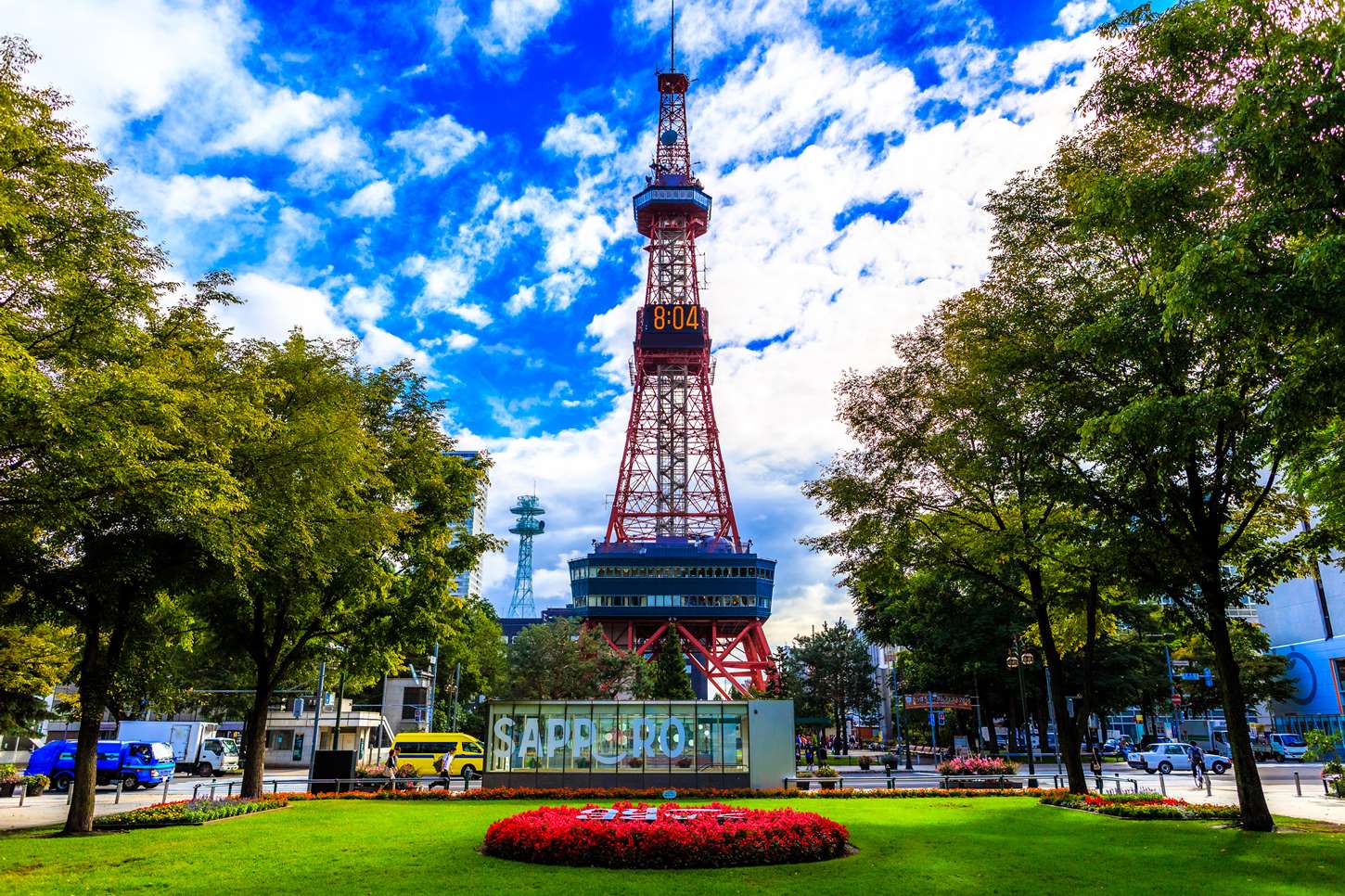
Sapporo TV Tower and Odori park in Sapporo, Japan
Sapporo Station is the transportation hub of Hokkaido, with a wide variety of tourist attractions within a day trip. Here is a list of the top 10 recommended day trip destinations from Sapporo Station, with their addresses and highlights:
Sapporo TV Tower
Odori W1, Chuo-ku, Sapporo 060-0042 Hokkaido
The tower offers panoramic views of Sapporo city and the surrounding mountains.
Odori Park
7 Odorinishi, Chuo-ku, Sapporo 060-0042 Hokkaido
This is the main park in Sapporo and is famous for its cherry blossom festival.
Former Hokkaido Government Office Building
6 Kita 3-jo Nishi, Chuo-ku, Sapporo 060-0003 Hokkaido
The retro building is a museum, with many interesting exhibits about the history and nature of Hokkaido.
Sapporo Underground Pedestrian Space
A vast underground shopping mall extends around JR Sapporo Station. Many citizens walk through the underground shopping center during the cold season.
Hokkaido University Sapporo Campus
5 Kita 8 Jonishi, Kita-ku, Sapporo 060-0808 Hokkaido
Walkable from JR Sapporo Station North Exit. The beautiful and spacious campus is well known by the citizens of Sapporo.
Historical Village of Hokkaido (Kaitaku-no Mura)
50-1 Atsubetsucho Konopporo, Atsubetsu-Ku, Sapporo 004-0006 Hokkaido
Buildings from the late 19th and early 20th centuries, when Hokkaido was first settled, have been relocated and are open to the public on the expansive grounds. Visitors can step back in time to the Hokkaido of those days.
Sapporo Beer Museum
9-1-1 Kita 7-Jo Higashi, Higashi-ku, Sapporo 065-0007 Hokkaido
The only museum in Japan dedicated to beer.
Susukino
Chuo-ku, Sapporo 064-0808 Hokkaido
Susukino is one of the most popular entertainment districts in Japan.
Mt. Moiwa
5-3-7 Fushimi, Chuo-ku, Sapporo 064-0942 Hokkaido
Mt. Moiwa is a 531-meter-high mountain located 5 kilometers southwest of the center of Sapporo. The night view of the city of Sapporo from the top of the mountain is magnificent. You can take a ropeway to the top of the mountain.
Mt. Okura Observatory
1274 Miyanomori, Chuo-Ku, Sapporo 064-0958 Hokkaido
This ski jump stadium was used for the 1972 Sapporo Olympics. When the ski jumping competitions are not being held, visitors can view the city of Sapporo from the observatory at the starting point of the competitions, which is 307 meters above sea level.
Where to leave your luggage
Coin lockers are located in several areas inside and outside of JR Sapporo Station. Most lockers are located near the ticket gates, especially clustered on the south exit side. There are many signs in the station indicating coin lockers, so use them as landmarks to find them.
In early February, when the Sapporo Snow Festival is held, a temporary baggage storage area is usually set up at the west ticket gate of Sapporo Station. Since the lockers at the station are very crowded during this period, it is recommended to use this storage area. Please note that the hours of operation are usually limited to 10:00-18:00.
Recommended hotels and inns
JR Tower Hotel Nikko Sapporo
2-5 Kita 5 Jo Nishi, Chuo-Ku, Sapporo 060-0005 Hokkaido
0 mi/ 0 km from Sapporo Station
Hoetl class: 4
Hotel style: Mountain View, Modern
Check Rates & Availability:
>> See on Tripadvisor
>> See on Trip.com
>> See on Expedia
Sapporo Grand Hotel
4-2 Kita 1 Jo Nishi, Chuo-Ku, Sapporo 060-0001 Hokkaido
10-minute walk from JR Sapporo Station. Access is also available from the underground walkway as well. with direct access to the underground walkway.
Hoetl class: 4
Hotel style: Historic Hotel, Classic
Check Rates & Availability:
>> See on Tripadvisor
>> See on Trip.com
>> See on Expedia
Solaria Nishitetsu Hotel Sapporo
5-1-2 Kita 4-jo Nishi, Chuo-ku, Sapporo 060-0004 Hokkaido
5-minute walk from JR Sapporo Station.
Hoetl class: 4
Hotel style: City View, Business
Check Rates & Availability:
>> See on Tripadvisor
>> See on Trip.com
>> See on Expedia
Cross Hotel Sapporo
2-23 Kita 2 Jo Nishi, Chuo-Ku, Sapporo 060-0002 Hokkaido
5-minute walk from JR Sapporo Station.
Hoetl class: 4
Hotel style: Modern, Trendy
Check Rates & Availability:
>> See on Tripadvisor
>> See on Trip.com
>> See on Expedia
Mitsui Garden Hotel Sapporo
6-18-3 Kita 5 Jo Nishi, Chuo-Ku, Sapporo 060-0005 Hokkaido
4-minute walk from JR Sapporo Station.
Hoetl class: 3
Hotel style: Mid-range, Modern
Check Rates & Availability:
>> See on Tripadvisor
>> See on Trip.com
>> See on Expedia
Richmond Hotel Sapporo Ekimae
1-1-7 Kita 3jo Nishi, Chuo-Ku, Sapporo 060-0003 Hokkaido
4-minute walk from JR Sapporo Station.
Hoetl class: 3
Hotel style: Centrally Located
Check Rates & Availability:
>> See on Tripadvisor
>> See on Trip.com
>> See on Expedia
HOTEL MYSTAYS Sapporo Aspen
4-5 Kita 8 Jo Nishi, Kita-Ku, Sapporo 060-0808 Hokkaido
4-minute walk from JR Sapporo Station.
Hoetl class: 3
Hotel style: Family, Centrally Located
Check Rates & Availability:
>> See on Tripadvisor
>> See on Trip.com
>> See on Expedia
We support your itinerary planning!
Click the button to get an overview of hotel information and popular tourist routes from all over Japan featured on our site. We’ve included comprehensive details to aid in planning your trip, so please make use of it.
Comprehensive checklist before traveling to Japan

Book flights
Compare and purchase flight tickets
When planning your trip to Japan, it's advisable to start by researching flights several months in advance. Airlines often release promotional fares, especially during off-peak seasons. Use comparison sites like Skyscanner or KAYAK to get a sense of the price range. Be flexible with your travel dates if possible; flying mid-week might be cheaper than on weekends.
>> Visit Skyscanner's official website
>> Visit KAYAK's official website
Order Japan Rail Passes for each family member
Purchase your Japan Rail Pass before departure
The Japan Rail (JR) Pass offers unlimited travel on JR trains, making it a cost-effective option for tourists. However, it's only available to foreign tourists and must be purchased *before* you arrive in Japan. Determine the areas you plan to visit; if you're traveling extensively, a nationwide pass is beneficial, but if you're only exploring a specific region, consider regional JR passes. Children under 12 get a discounted pass, so ensure you order the correct type for each family member.
>>Visit Japan Rail Pass's website
Plan your attire for Japan
Check the weather at your destination on this site
Japanese weather varies significantly by season. In summer, it's hot and humid, so breathable clothes are essential. Winters, especially in the north, can be cold, requiring warm attire. If visiting during the rainy season (June to early July), pack a good umbrella and waterproof shoes. While Japan is generally casual, certain places like temples, shrines, or upscale restaurants may require modest and neat dressing.
Reserve a pocket Wi-Fi or SIM card
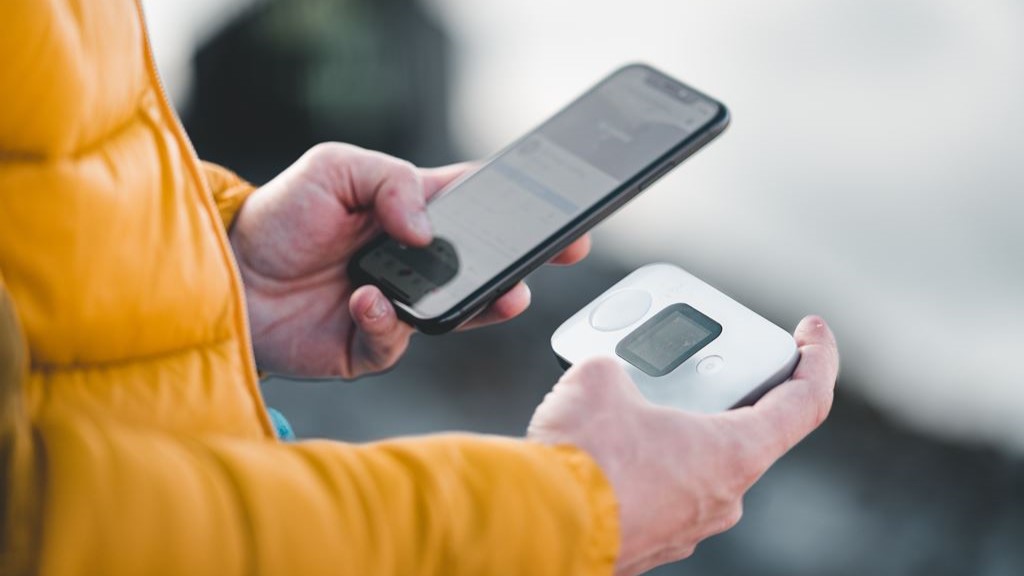
SIM card or pocket Wi-Fi is required
Beyond clothes, consider packing essentials like a universal power adapter (Japan uses Type A and B sockets), portable Wi-Fi or SIM card for internet access, and any necessary medications (with a copy of the prescription).
Which is better: a SIM card or pocket Wi-Fi?
When traveling in Japan, one essential to consider is securing internet access, especially given that many locations still don't offer free Wi-Fi. To ensure you can use your smartphone throughout your trip, you'll typically have three options: (1) a SIM card, (2) pocket Wi-Fi, or (3) the roaming service provided by your mobile company. Roaming services can be quite expensive, so we often recommend using a SIM card or pocket Wi-Fi. While SIM cards tend to be more affordable than pocket Wi-Fi, they can be trickier to set up. Pocket Wi-Fi, on the other hand, can be shared among several users, making it a favorable choice for families or groups.
▼SIM card
Advantages:
Relatively affordable.
Disadvantages:
Can be time-consuming to set up initially.
May have strict data limits.
▼Pocket Wi-Fi
Advantages:
Offers substantial data allowances.
A single device can be shared among multiple users.
Easily usable with PCs as well.
Disadvantages:
Typically more expensive.
Japan's representative services

Sakura Mobile's website
▼SIM card
>>Visit Sakura Mobile's official website
>>Visit mobal's official website
▼pocket Wi-Fi
>>Visit Sakura Mobile's official website
>>Visit NINJA WiFi's official website
>>Visit Wi-Fi RENTAL Store's official website
Book local tours as needed
Pre-book your tour and have a great trip!
Local tours offer deep insights into Japan's culture and heritage. Websites like Viator or GetYourGuide offer a variety of tours, from traditional tea ceremonies to modern pop culture tours in Akihabara. Consider unique experiences like staying with monks on Mt. Koya or taking a cooking class to learn authentic Japanese dishes.
>>Visit Viator's official website
>>Visit GetYourGuide's official website
Purchase advance tickets for popular attractions
Make a reservation to avoid crowds
Attractions like Tokyo Disneyland, Universal Studios Japan, or the Studio Ghibli Museum often have long ticket queues. Buy tickets online in advance to save time. Some attractions also have timed entry, so check the specific time slots available and plan accordingly.
▼Tokyo Disney Resort
>>Visit Tokyo Disney Resort official website
>>Visit Viator's Tokyo Disneyland page
>>Visit Viator's Tokyo DisneySea page
>>Visit GetYourGuide's Tokyo Disneyland page
>>Visit GetYourGuide's Tokyo DisneySea page
▼Universal Studios Japan
>>Visit USJ official website
>>Visit Viator's USJ page
>>Visit GetYourGuide's USJ page
Buy travel insurance

insurance concept, health, life and travel insurance
It is important to be prepared for emergencies
While Japan is a safe country, travel insurance is crucial for unforeseen events like health emergencies, travel disruptions, or lost baggage. Ensure your policy covers medical expenses in Japan, as healthcare, though excellent, can be expensive.
Here we introduce online travel insurance services that are popular worldwide.
World Nomads: An online travel insurance service widely endorsed by travelers worldwide. They offer plans that cover adventurous activities and high-risk sports.
>>Visit World Nomads' official website
AIG Travel Guard: An insurance service available to travelers all over the world. They offer a wide range of options, including cancellation protection and emergency medical insurance.
>>Visit AIG Travel Guard's official website
Share your itinerary with emergency contacts
Organize your reservation information
Keep a digital and printed copy of your detailed itinerary, including hotel addresses, train schedules, and booked tours. Share this with a trusted family member or friend not traveling with you.

